Hong Kong’s Chief Executive Carrie Lam recently said she would have to wait and see when asked whether the press might be penalized for reports on news events deemed politically incorrect by the powers that be. She did not deny the possibility, but she didn’t affirm it either.
When Professor Benny Tai went to Taiwan and spoke about a hypothetical democratic future for China with self-determination for Hong Kong, the pro-Beijing press declared there to be “no space for so-called academic freedom” when such great violations of political principle and the national constitution were involved.
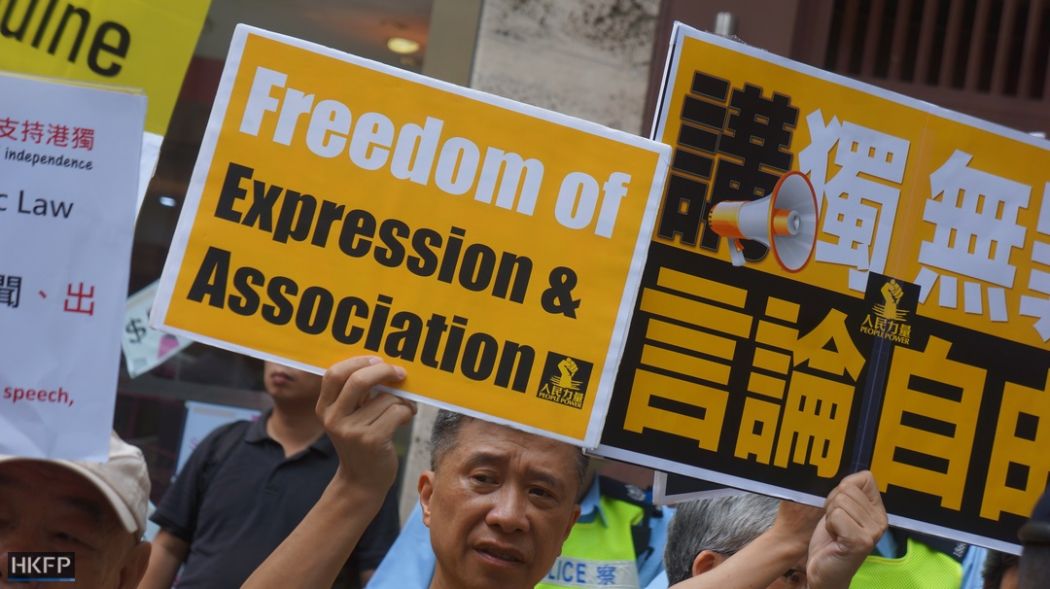
But the basic free speech principle itself still seemed safe. Benny Tai returned to Hong Kong and carried on professing his ideas, with the press continuing to report them, in the same way as before.
When Chinese officials were threatening to prevent aspiring politicians from contesting elections if they were known champions of Hong Kong’s favourite protest slogan, the officials added a caveat. They said people could stand in Victoria Park and shout “down with one-party dictatorship” to their heart’s content. They were free to do so.
But such people couldn’t expect to receive the stamp of official approval needed to contest elections. At least the right to shout seemed safe.
So in mid-July, when the police issued their formal recommendation to ban the Hong Kong National Party as a threat to national security, critics of the ban took solace in the fact that at least Hong Kong still honours the principle and practice of free speech.
The government is currently considering the police recommendation. Party convener Andy Chan Ho-tin was initially given three weeks to defend himself and has now been given until September 4, to show cause why his party should not be shut down.
Still, the critics were not unduly alarmed because the Hong Kong National Party (HKNP) is essentially a one-man operation. Andy Chan could carry on as usual, doing what he has been doing since early 2016, when he announced the formation of his new group and called it a political party.
He is its sole spokesman and although the government would not allow him to contest the 2016 Legislative Council election, he has carried on otherwise as he pleased. He gives speeches, attends forums, travels, gives media interviews, posts online, and distributes publicity materials advertising his cause, which is full independence for Hong Kong.
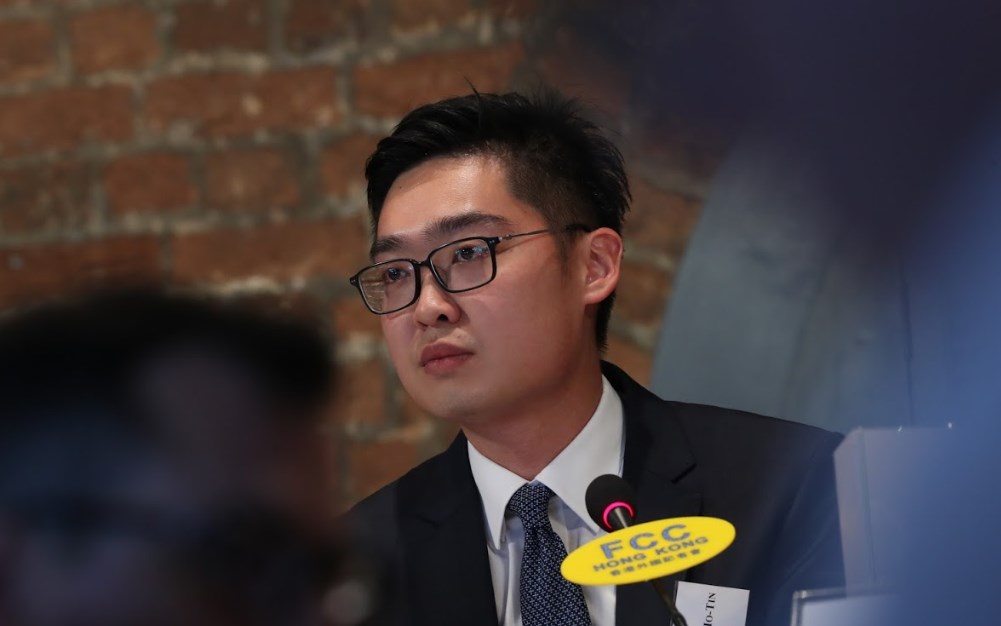
But now it seems the critics were wrong. Andy Chan will not be allowed to speak his mind in public, and a foreign press organization is being threatened with dire consequences for offering him a platform to do so.
The threat to free speech
The proposed ban of his party naturally transformed Andy Chan into an instant celebrity, providing him with many new opportunities to promote his cause. It made him just the sort of guest speaker that members of Hong Kong’s Foreign Correspondents Club like to invite for their luncheon talks.
The date was set for August 14, and the club notice was posted on July 30, for a talk titled: “Hong Kong Nationalism: A Politically Incorrect Guide to Hong Kong Under Chinese Rule.” Reservations “sold out” immediately… and then the trouble began.
It came first in the form of a message from the Hong Kong office of China’s Foreign Ministry; then from Hong Kong Chief Executive Carrie Lam; and finally, from Lam’s predecessor Leung Chun-ying. The two of them, Lam and Leung, seem to have worked out a good cop, bad cop routine … she offers her usual bland pronouncements, he gives full vent to his familiar pugnacious personality.
The pro-Beijing media provided back-up with a daily drumbeat of accusations and allegations, naming names among the “black hands” past and present who were manipulating things behind the scenes at the FCC.
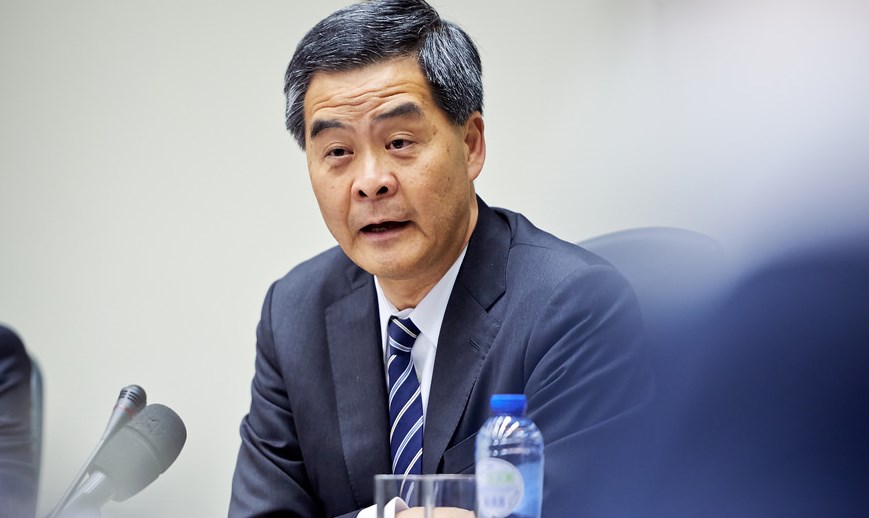
The arguments illustrate the rationale that Hong Kong is now expected to embrace. They seem to be accepted without much difficulty by officials and pro-establishment opinion leaders, and the pro-Beijing community at large.
But for all who regard themselves as democrats of whatever group or party, the arguments are alien and unpalatable.
The Chinese Foreign Ministry’s Hong Kong office issued an announcement on August 3, declaring Beijing’s opposition to Chan’s talk. The statement said: “We resolutely oppose any external forces providing a platform for the independence forces to spread their absurd ideas.”
This reflected the sense of a meeting with someone from the office, who had conveyed the message in person indicating to FCC management that Chan should be dis-invited. The suggestion was naturally rejected.
An August 6 explanation from the FCC Board of Governors cited the usual freedom-of-political-expression reasons. It said the FCC neither opposes nor endorses the views of its speakers … It believes in the public’s right to know, to hear the views of different sides in any debate … Hong Kong is a place where the rule of law applies, and freedom of speech prevails.
The FCC even arranged for the speech to be streamed live on Facebook, which the government broadcaster Radio Television Hong Kong (RTHK) and local stations all declined to do.
The official rebuttals have by now become almost as familiar. Current Chief Executive Carrie Lam said the FCC invitation was “regrettable and inappropriate.” She also said her administration had “zero tolerance” for Hong Kong independence advocacy. But that had nothing to do with freedom of speech.
She explained this contradiction by saying that the basic freedoms… speech, the press, association… are all protected by Hong Kong’s post-colonial Basic Law constitution. Nevertheless, those freedoms could only be allowed to exist in accordance with the law. And Article One of the Basic Law holds that Hong Kong is an inalienable part of the People’s Republic.

Her statement has implications that go far beyond Andy Chan’s one-man stand. It goes far beyond because the official arguments are now conflating independence advocacy with self-determination and demands for genuine autonomy as well… all lumped together into a single “separatist” category.
This official line of reasoning, reinforced daily in the official media, holds that Andy Chan is not just one lone individual. He is “part of a movement,” and all must be opposed. Turning him into such a high-profile target is meant as an object-lesson and a warning to all like-minded Hong Kongers.
“The seedlings must not be ignored,” declared one headline. The idea must be nipped in the bud. But it was left to the former Chief Executive, Leung Chun-ying, to step into the role of enforcer and give teeth to the official polemic.
The threat to the FCC
Being by profession a property surveyor, CY Leung knows where to look for secrets hidden in closets and cellars, so it was natural for Leung to focus on the one physical asset without which the FCC cannot exist. This is an old heritage-status building, located at the upper end of Ice House Street.
The street name and building are the only reminders of the site’s original use as an ice house cold storage warehouse and headquarters for the Dairy Farm Company.
The FCC itself has a storied history dating back to World War II days in China and the Civil War that followed. After the war ended in 1949, the club joined the south-bound exodus and moved from Shanghai to Hong Kong, where it has remained ever since.
Legend has it that the FCC owes its current home to the persuasive efforts of veteran World War II correspondent Clare Hollingworth. She is credited with persuading the then Governor, Murray Maclehose, to let the FCC move into one of the colony’s many run-down historic buildings. And so, in the early 1980s, the old Dairy Farm property was given a new lease on life.
But there was inevitably a catch to the deal that Leung Chun-ying now seeks to exploit. Due to the peculiarities of Hong Kong’s land ownership system and the building’s heritage status, the government became the FCC’s landlord. And unlike the Fringe Club that shares the building, the FCC is not favored with concessionary rates. The current rent is upwards of HK$500,000 per month.
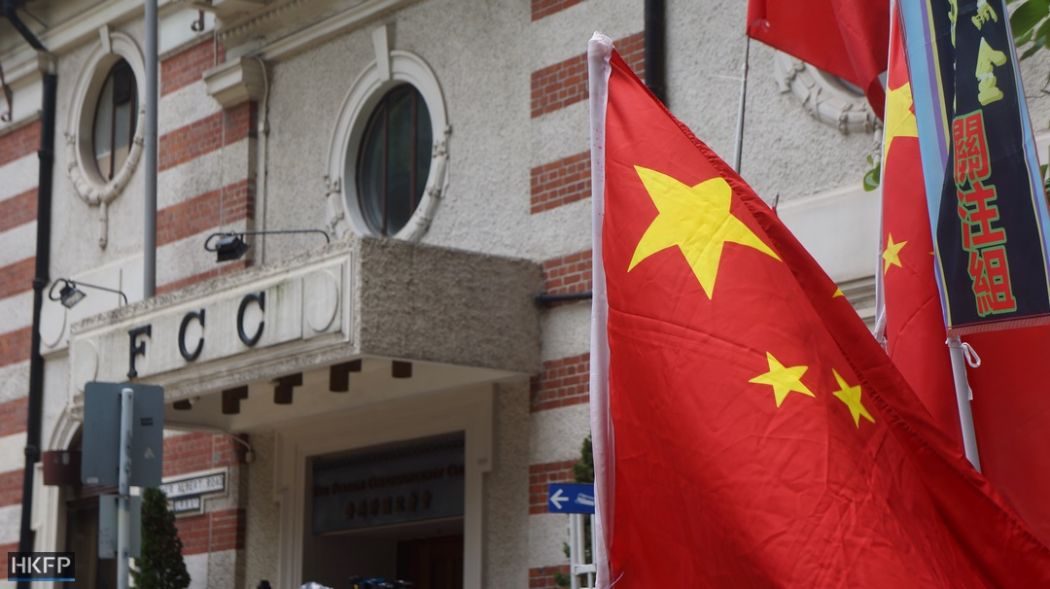
Still, there is a measure of government beneficence. The rent is negotiated. It would likely be even higher if opened to public bidding and CY Leung is well aware of current astronomical property prices in such a prime location. The current lease expires in 2023.
He also likes to follow the international media and seems to have taken a cue from U.S. President Donald Trump’s Twitter storms. After the FCC refused to dis-invite Andy Chan, Leung launched into a flurry of threatening Facebook and e-mail posts (cyleung@leungchunying.hk).
The first, dated August 4, actually predated Carrie Lam’s statement and was in English, just to be sure the FCC’s foreign clientele got the point. In his “Open Letter to Mr. Victor Mallett,” Leung mocked the standard freedom-of-information arguments.
He wondered if it would lead to guest speakers from Taiwan’s independence movement or invitations to “criminals and terrorists.” Mallet is one of the FCC’s vice-presidents.
Leung repeated the awkward assertion that Andy Chan’s right to speak “has nothing to do with press freedom.” Hong Kong greatly treasures press freedom, Leung wrote, which was why the government leased the old building at a token rent. Carrie Lam corrected him on this point the next day, but he carried on.
The South China Morning Post queried him on the matter and he shared his August 6 answers online. The lease was granted without an open-market bid, he replied. That’s not normal. Let them bid for it on the open market. Why had he decided to join this quarrel? Because all Chinese citizens should speak out against the secessionists.
He then claimed to have organized a search because he wanted to read for himself the terms of the FCC’s lease with the government. But his contacts came up empty-handed. The Land Registry had no records.
【Show Us the Lease and Let the Market Decide】The Foreign Correspondents Club (FCC) and I do not agree on another matter:…
Posted by CY Leung on Tuesday, 7 August 2018
“Show Us the Lease and Let the Market Decide,” he demanded in his August 7 post. Since the building is a public asset, it should be open to others “with equally deserving causes” and a more discriminating taste in guest speakers.
Andy Chan is not just another member of the political opposition, insisted Leung. “The FCC has crossed the line. No one can say that the FCC platform is open to all. It is not, and it shouldn’t be.”
Francis Moriarty, a former long-time member of the FCC Board of Governors recalls that Leung made a similar comment about the preferential rent some years ago. But when the then FCC president asked if Leung meant it as a threat, he said no … just something to mention … and remember.
Foreign press groups issued a statement calling on Leung to stop threatening the FCC. What threat, he retorted on August 8. The FCC is violating Hong Kong’s rule-of-law as defined in Hong Kong’s Basic Law.
The FCC had also not responded to his request for full disclosure on the lease. “So are we being told that severing Hong Kong from China can be the topic of a luncheon talk but the government lease of the premises is out of bounds?”
Despite the sarcasm, Leung is a man with a higher purpose and he is trying his best to explain the unfamiliar new rules Beijing is trying to impose here. In his August 9 “Freedom and Responsibility” post, in Chinese, he said freedom must be restricted as and when necessary. The FCC and Andy Chan are no exceptions.
He quoted the Basic law’s Article 23 national security mandate requiring Hong Kong to criminalize secession, sedition, subversion, etc. He said Hong Kongers have no freedom to commit such acts and they have no freedom to collaborate with foreign political organizations either, another restriction written into Article 23. He said even Western countries constrain freedom in the interests of security. Hong Kong must do the same. Andy Chan’s independence advocacy violates Article 23.
Speech day
On August 14, the police were out in force by 10 a.m., with more than enough paddy wagons parked along Ice House Street. Camera crews were already in position outside the FCC entrance, staffers were on alert inside, and sound systems were being tested… with a familiar band of patriotic vigilantes already in position across the street. Their theme for the day: protest the FCC’s “Conspiracy to Split China.”
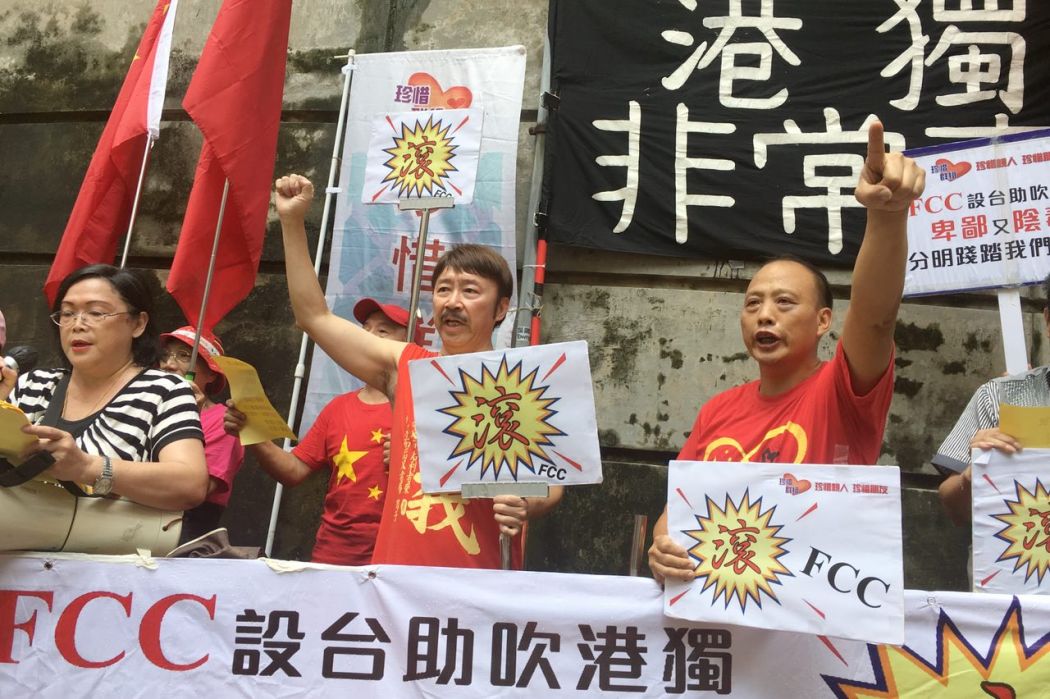
By noon, the narrow sidewalks were packed with loyalist protesters who kept up a steady disruptive clamour with loudhailer amplification throughout Andy Chan’s speech. The police kept pro-democracy groups more than shouting distance away, allegedly because the space was too constricted. Allowing them all to share it might lead to physical confrontations.
Andy Chan reiterated his provocative message not in his personal capacity but as convener of the Hong Kong National Party that he expects to be banned. He said that for Hong Kong to have true democracy it must also have independence. There is no other way because democracy means the people are sovereign, a concept and condition that Beijing will never tolerate.
Chinese rule, he said, is imperialistic in nature and a threat to free people everywhere but especially now to Hong Kong. The territory is being re-colonized, rapidly absorbed into the national mainstream, but his references were as much cultural as political.
He described it in the same terms that have been used for the process of forced ethnic assimilation in China’s national minority areas where large numbers of Chinese migrants have diluted the local populations… as in Tibet and especially in Xinjiang.
Chan referred to the quota of 150 mainlanders per day who are allowed to settle in Hong Kong, and to the wholesale intrusion of mainland people, culture, and language … the use of Mandarin at the expense of Cantonese, and so on. He described his message as an “ethical cry for liberation” and a “political cry for our own continued existence.”
Equally provocative, he called on the U. S. and Britain to step up pressure on Beijing for failing to honour its pre-1997 promises about protecting rights and freedoms under the new “one-country, two-systems” governing formula.

Chan said his dream of democracy is one that many share. But he acknowledged that many Hong Kong democrats also fear he has gone too far and will provoke a stronger Beijing crackdown.
At least everyone now has a clearer picture of where Hong Kong stands. In the past, liberal legal commentators seeking solace as they are wont to do, tried to find comfort in considerations of Hong Kong’s common law tradition.
When Andy Chan introduced his party in early 2016, they said as long as he only spoke about independence but didn’t engage in any concrete action to achieve it, he should be O.K.
They have used similar reasoning with respect to different aspects of Article 23 national security legislation, the chief reference point of CY Leung’s offensive. The legislation was shelved in 2003 after massive protests but now loyalists are clamouring for its passage.
Leung is one such loyalist and his postings about Andy Chan spell this out clearly. By Article 23 standards, Chan is committing a crime and the FCC is aiding and abetting. There will be no liberal common law interpretation, as Leung sees it.
Still, Leung’s consciousness-raising efforts have a way to go since there are doubts even among those sympathetic with his patriotic ideals. SCMP writer Alex Lo belongs in this category. He thinks Andy Chan should be in jail. But he also thinks the FCC should be able to invite whoever it wants “in the name of free speech.” So he doesn’t understand what all the fuss is about, why Leung and Lam are so “hot and bothered” over the FCC affair.
Alex Lo needs to read Leung’s posts more carefully, especially the one dated August 9 on “Freedom and Responsibility.” He makes a point of quoting the phrase from Article 23 about not allowing foreign political organizations or bodies to carry on their activities here, and not allowing local organizations to establish ties with foreign counterparts.
The FCC invitation to Andy Chan seems to be precisely what Article 23 aims to prevent in terms of foreign interference. At least that’s the way CY Leung understands it and that’s the point the pro-Beijing media has been hammering home on a daily basis.
Leung and Lam and the Ministry of Foreign Affairs are trying to explain to slow-learning Hong Kongers about the absolute “red line” Beijing is trying to establish and what that means in practical terms.
President Xi Jinping first used the term in his July First speech last year. But probably there will have to be many more such lessons in red-line politics for people here to get the point, much less accept it as a standard to live by.
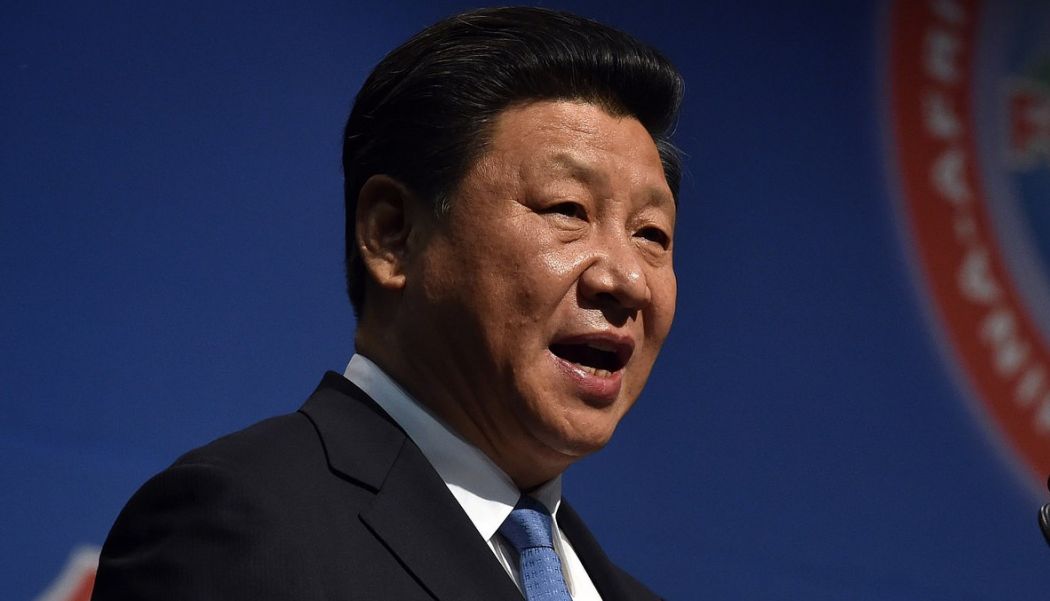
Academic freedom, the press, speech, elections… everything originally promised to Hong Kong by its post-colonial Basic Law constitution is being redefined and qualified, and hedged about with unfamiliar Beijing-style rules.
As for the foreign-run FCC, it presumably has until 2023 to find a solution, trapped as it is between the foreign principle of free speech and Beijing’s demand for politically correct speakers in every part of China. Or maybe 2023 will come sooner.
Pro-government Legislative Councilors held a grim-faced press conference on August 14, to demand the government take back the FCC’s lease as proper punishment for so grave a transgression.
Breaking a lease is an expensive proposition for whoever breaks it… penalties, judgements, court costs, legal fees. But with the judiciary now inclined to defer to the executive on many political points, who is to say the FCC’s lease cannot be broken… especially when Leung Chun-ying cannot even verify the fact of its existence?
Disclosure: As an honorary lifetime FCC member with a lifelong commitment to the proposition that free access to political information is the most basic and essential of all the rights and freedoms, I am not a disinterested observer of the FCC-Andy Chan saga.
